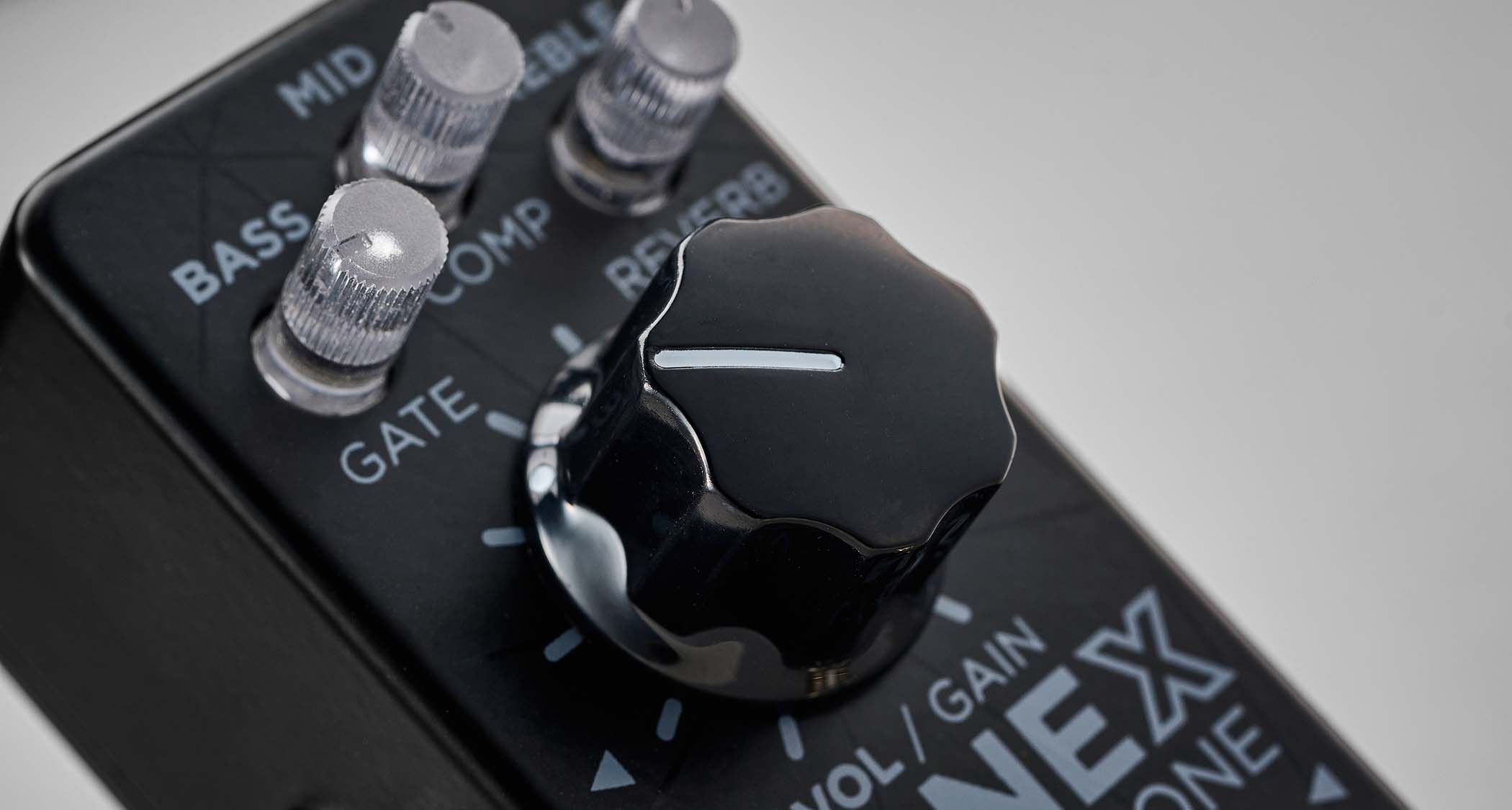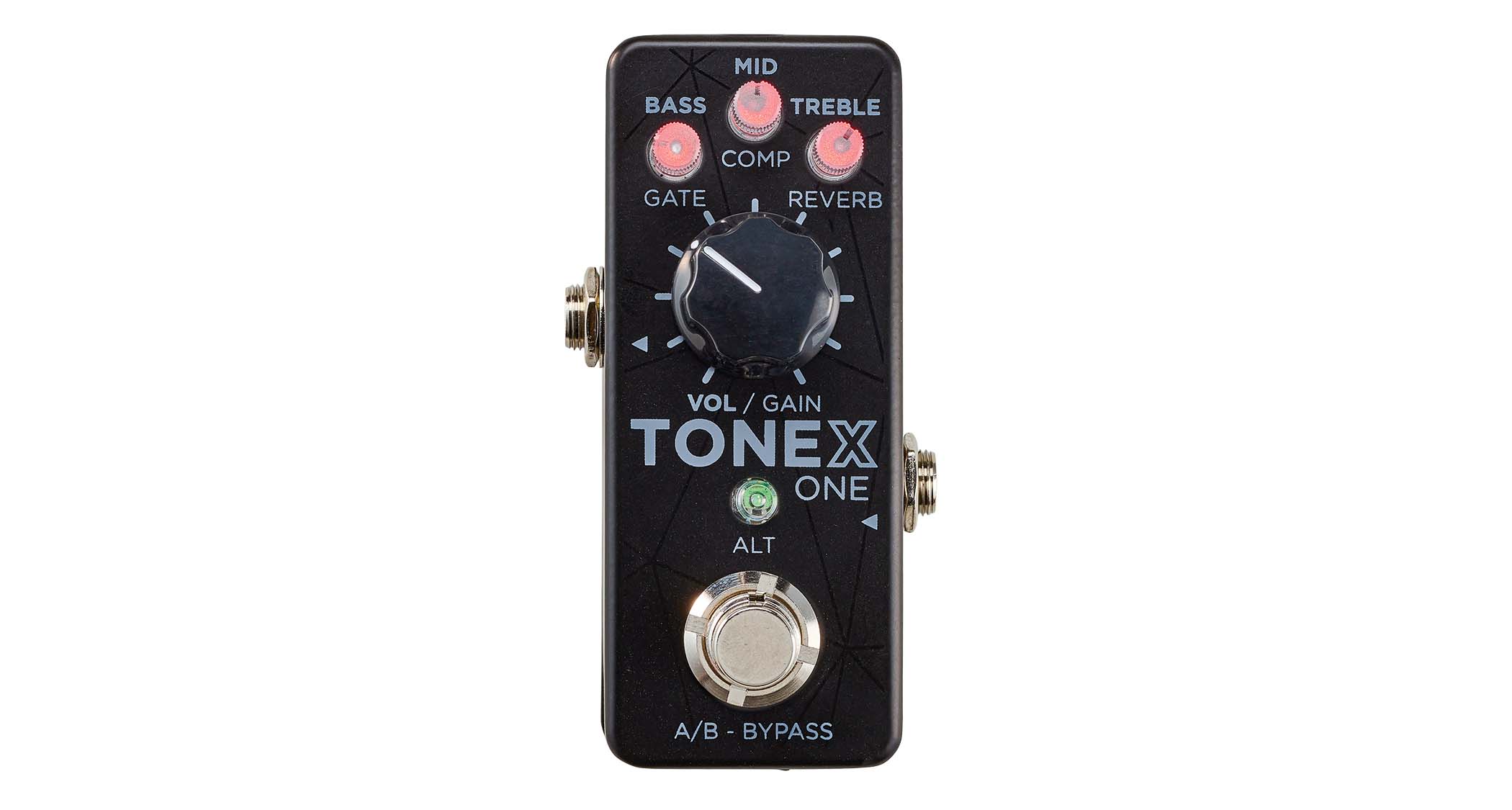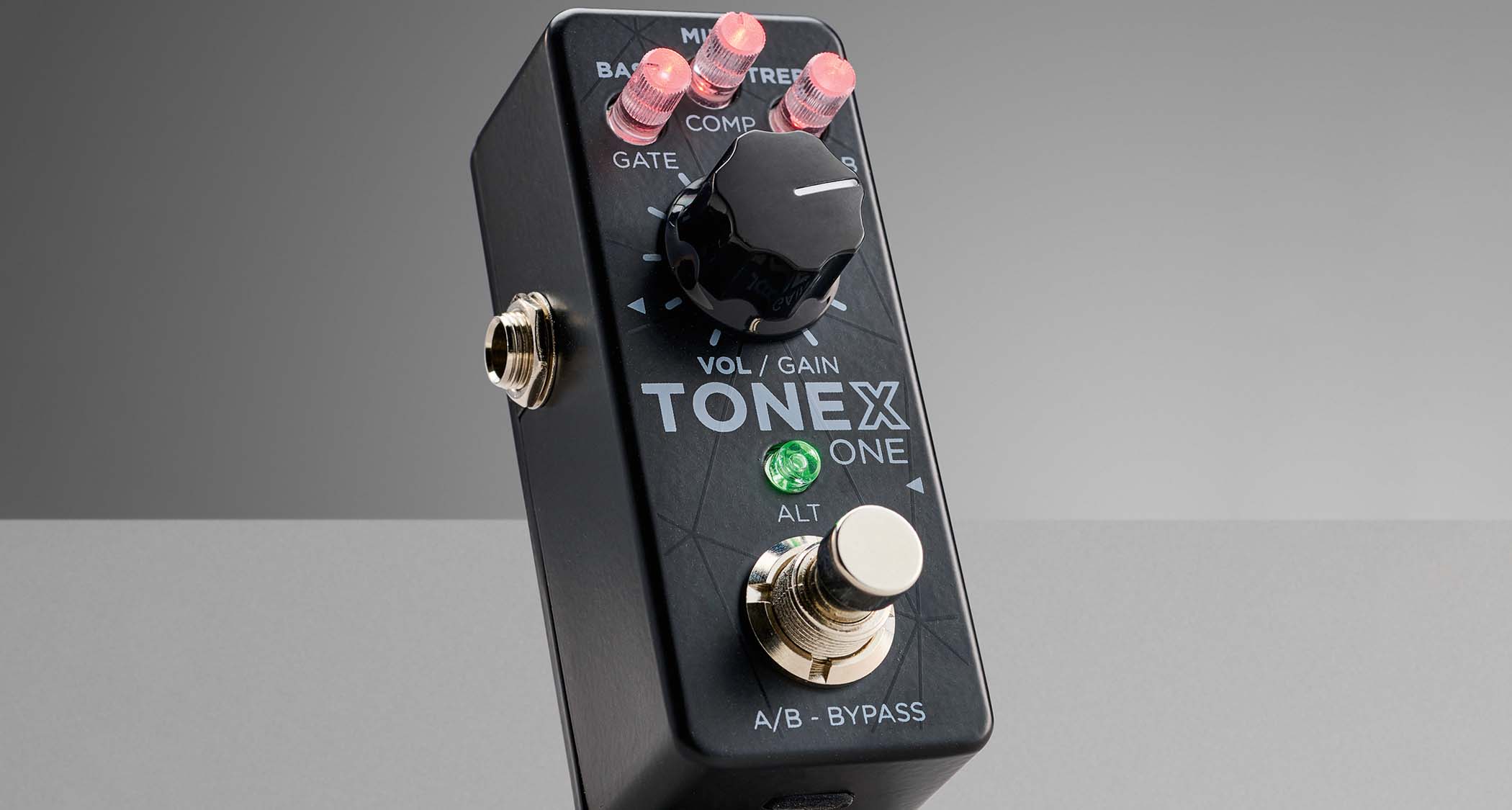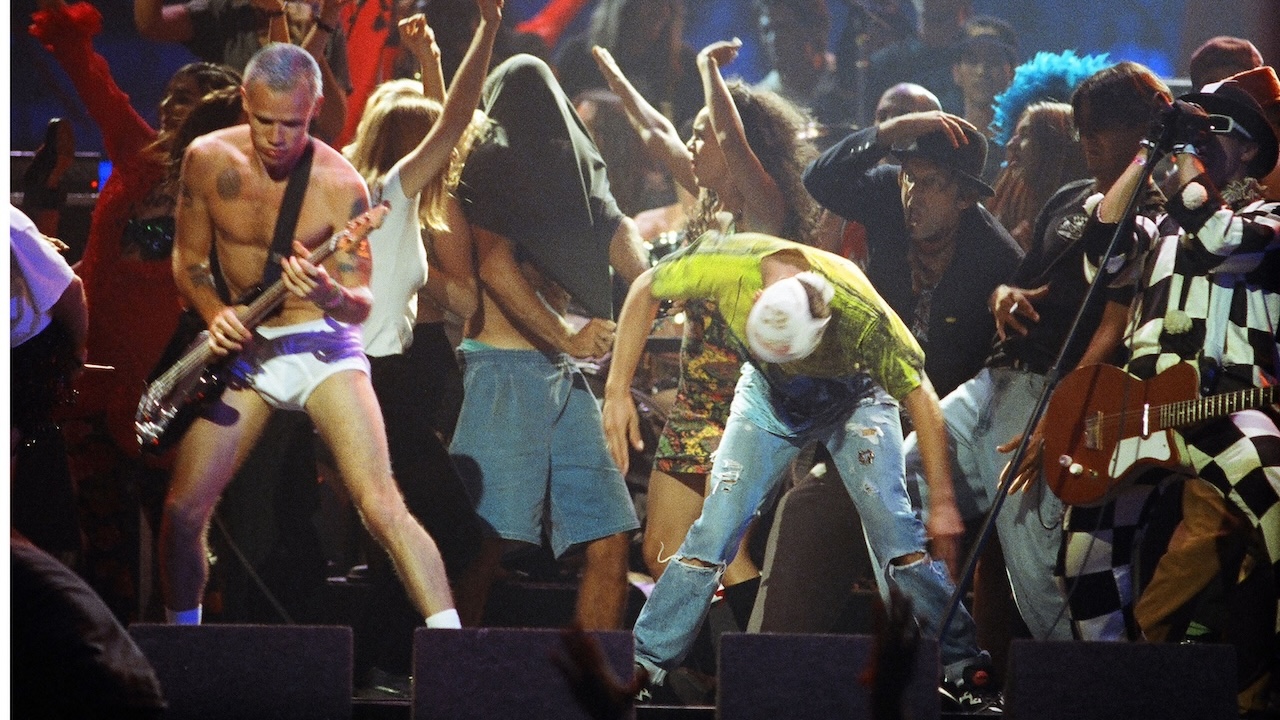Guitar World Verdict
The Tonex One isn’t far off the cost of a starter amp and boasts convenience, great sounds and a huge range of additional options if you connect it to a computer. The most powerful amp modeler for its size, bar none.
Pros
- +
The most powerful amp modeler for its size, bar none.
- +
Super-compact.
- +
Affordable.
- +
Integrates with Tonex software.
- +
Easy to use.
Cons
- -
Tiny format sacrifices some onboard tweakability.
You can trust Guitar World
Last year, IK’s TONEX merged its AI-equipped amp and effects software modelling with a large-format hardware pedal. This enabled users to create a tone preset and take it anywhere, narrowing the margins between practice, studio and stage. Its new Tonex One is a tiny sibling to the impressive TONEX, coming in at just under half the price, and a fraction of the size, while still housing a powerful feature set.
As an amp modeller, it’s as good as units many times more expensive, but that stands to reason. The full-size TONEX is a workhorse, and this shares the same pedigree, albeit in a smaller, nano-sized form factor.
Straight out the box, the Fender-like clean model is excellent. It allows you to get your bearings with some solid lower-gain tones. It’s versatile, however – stack some drives in front and it will respond in an amp-like way to higher gain levels.
If you were looking for a headphone amp for silent practice, you could stop there. The dirty, Marshall-like voice on the other side of the A/B switch is less of a knockout, but still serviceable, particularly with a boost in front.
Whether this pedal is for you depends on two simple questions. First, how you plan on using it, and second, how much customisation you’re happy to do. Although core settings and a number of models can be accessed from the pedal directly, you’ll get the most out of it if you connect it to a computer and use IK’s software.
The software is as good as you’d expect from IK, but it is less tactile than a real amp. It’s possible to access advanced features like disabling cabs via the pedal’s setup mode, but more fiddly than via PC. Luckily, even if tweaking isn’t where you get your kicks, you can still get a lot from this pedal even if you only use it as a pedal platform.

It follows that the best use for this is as a ‘set and forget’ unit. As in, dial in a sound that works from the stock set of 20 models, or load the perfect one from IK’s software. Whether you’re planning on using it direct into a PA, as a gigging backup into a power amp, or as an audio interface, it’s hard to overstate the potential use of something so powerful and so small set up perfectly to your taste.
All the latest guitar news, interviews, lessons, reviews, deals and more, direct to your inbox!
As far as it goes, the pedal itself is simple to use, with the key controls all on the front panel. There’s access not only to a three-band EQ, gain and volume, but also gate, comp and reverb.

All in all, there’s not much to complain about. The Tonex One isn’t far off the cost of a starter amp and boasts convenience, great sounds and a huge range of additional options if you connect it to a computer.
Of course, the user interface isn’t as good as the larger unit, but that’s the price you pay for it being literally pocket-sized.
Specs
- PRICE: $/£179
- TYPE: Amp model/amp sim
- CONTROLS: Gain, Volume, Bass, Mid, Treble, Gate, Comp, Reverb
- SOCKETS: Audio in/out, Power, USB-C
- BYPASS: A/B, Bypass Modes
- POWER: 9V DC Centre-negative
- View at Sweetwater (US)
- View at Thomann (UK/Europe)
Alex Lynham is a gear obsessive who's been collecting and building modern and vintage equipment since he got his first Saturday job. Besides reviewing countless pedals for Total Guitar, he's written guides on how to build your first pedal, how to build a tube amp from a kit, and briefly went viral when he released a glitch delay pedal, the Atom Smasher.


